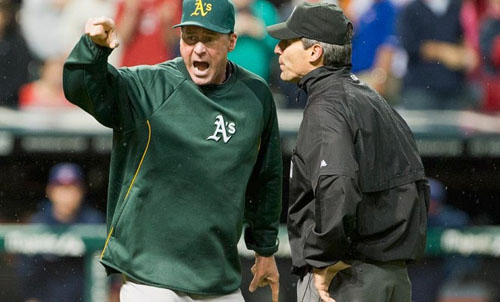
I tend to describe Major League Baseball as a six-month version of the Olympics, which may seem a bit ludicrous at first, but examining what the sport has become makes the analogy a little bit easier to understand. We have the privilege to watch the best of the best play baseball every single day for a full half of the calendar. And it’s an international event—top players from around the world flock to the U.S. to play in the big leagues, an opportunity that has even compelled a number of Cubans to defect over the years.
Baseball is a game that requires extraordinary skill and one that, according to many experts, features the most difficult task in sports: hitting a 90-plus-mph baseball. A ball traveling at that speed reaches a catcher’s mitt in less than half a second, and the batter must decide whether to swing in even less time. Even if he does swing, there’s still the issue of making contact, and with all the various pitches available to a versatile pitcher, the hitter had better have an incredible eye.
Sometimes, though, talent alone is not enough for success in the majors. On rare occasions, there is an element of the game at work that strips the competitive spirit away from what transpires on the field—one that exists outside the control of players, coaches and fans. It’s an ideology defined by arrogance and self-righteous authority, and it plagues a large percentage of the officiating staff in the MLB today.
The role of an umpire is to oversee the game and enforce protocol. Their power stems entirely from the rulebook, yet it’s not uncommon to see umpires overstep their bounds. It’s not their interpretation of the rules that gets them into trouble; it’s the unwillingness to admit any wrongdoing if a call is erroneously made.
In a game between the Cleveland Indians and Oakland Athletics earlier this month, the officiating team failed to award a home run to the A’s after the broadcast replay clearly showed the ball landing above the home run line. The decision to rule the hit a double came after a video review in which all umpires were privy to the same replay that the audience saw. As unbelievable as the situation was (the A’s lost by one run), Crew Chief Angel Hernandez later denied that his decision was wrong and stubbornly refused to accept any accountability for Oakland’s loss.
Just a day after that debacle, Houston Astros manager Bo Porter made an illegal pitching change in the seventh inning of a game against the Los Angeles Angels and was given the green light from the umpiring staff. The Angels’ manager came out and argued his case, but the umpires still allowed Porter to make the switch. Although the crew chief that night was suspended for a couple games, he never offered an apology.
Instances like these happen all too often at the top level of the sport. Since so many of the officiating decisions made during a baseball game are judgment calls, overturning a call effectively devalues the umpire’s judgment, a concept that the men whose responsibility it is to ensure that a game plays out fairly simply cannot tolerate. It’s that conceited attitude that allows for such a disturbing trend to continue, and given that small-time suspensions and fines don’t exactly put fears of pink slips into the minds of umpires, it doesn’t look like officiating power trips will end any time soon.

